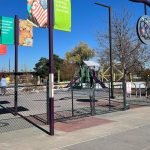After several painstaking years reimagining parking minimums and devising an update to the city’s comprehensive land use plan, Dallas officials are embarking on their next great effort: zoning reform.
The city is putting out a call for residents and stakeholders to get involved in the process, scheduling a number of public engagement events this month in different parts of town. Officials in the Planning & Development Department (PDD) are leading the push with help from the Chicago-based urban planning firm Camiros.

“Over the years, with numerous small changes here and there, our development code has become very complicated,” said PDD Deputy Director Andreea Udrea, according to a press release. “We are seeing how it affects development with each zoning case and new Planned Development District we create.”
She said zoning reform should help make the code “simple, clear, and future ready.”
Dallas’ development code is lengthy. If you download it in PDF format, the document totals more than 400 pages in smaller type and wider margins than your typical city memo. Nevertheless, the code’s length isn’t the real issue. Scope and complexity are.
“This reform is about aligning our zoning framework with the vision and values of our adopted policies, removing unnecessary regulatory hurdles, and providing clarity and predictability,” Udrea said.
A lot of that vision was outlined in ForwardDallas 2.0, which encourages more density, housing, green space, walkability, and transit-oriented development. “ForwardDallas 2.0 is not a regulatory document or a silver bullet for all public policy. It informs decisions about zoning and development, but does not constitute zoning nor change zoning,” the document reads.
While the land use plan prompted stiff resistance from some residents in single-family neighborhoods, a majority of the Dallas City Council embraced it, calling the end result a compromise to deal with population growth and housing affordability. Parking reform shook out much the same way, with staff arguing that the city needed to trust in market mechanisms to rightsize space so more housing could be built.
Officials have been trying to make things easier on developers as they grapple with how to plot out the city’s future amid its housing shortage, insufficient revenues and taxpayer dollars, central business district in limbo, underfunded public transit, and the economic uncertainty under President Donald Trump’s tariff-fueled trade policy. One significant step was PDD’s recent launch of DallasNow, a new online platform for development and permitting services.
While modernization of city permitting has been long overdue, the launch coincided with the start of building season. Even still, David Lehde of the Dallas Builders Association (DBA) told CandysDirt.com in late May that DallasNow’s deployment has been “positive.”
“Obviously, as you would expect with a new platform going live, there have been the occasional questions and process clarifications,” Lehde said. “The team at PDD have been responsive. We have appreciated how they have sought to keep us informed and involved, from discussions at the inception of the program and even holding a training session here at DBA during the run-up to the migration.”
In any case, if you want to hear about what staff’s got cooking or give your two cents on zoning reform, you can do so on the following days at the locations below:
- Thursday, June 12: West Dallas Multipurpose Center – 2828 Fish Trap Rd @ 6-7:30 p.m.
- Friday, June 13: Erik Jonsson Central Library – 1515 Young St. @ 12-1:30 p.m.
- Tuesday, June 24: Cedar Crest Golf Course – 1800 Southerland Ave. @ 6-7:30 p.m.
- Wednesday, June 25: Dallas College Eastfield Campus – 3737 Motley Dr. in Mesquite @ 6-7:30 p.m.
- Thursday, June 26: Churchill Recreation Center – 6906 Churchill Rec Way @ 6-7:30 p.m.
You can stay up to date on the initiative through the city’s zoning reform website, which states:
“The City’s current zoning framework contains outdated rules and old approaches that make many desirable forms of development difficult or impossible to build in Dallas. Through the zoning reform effort, we’re engaging everyone in Dallas — from residents, to businesses, to developers and community advocates alike — to help us explore new possibilities. This is our chance to create a Code that reflects our city’s energy, diversity, and ambition — creating a Dallas that is ready for the future.”











